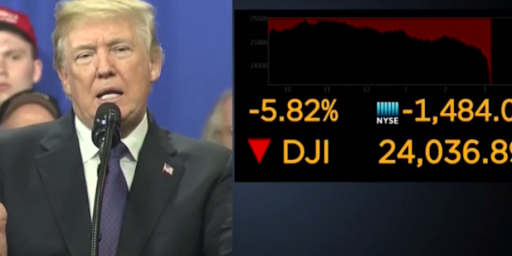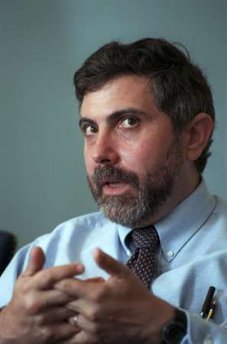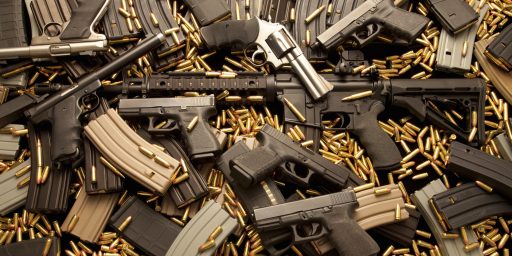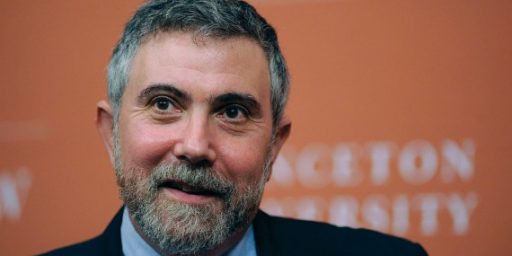Markets Factor in Acts of Terror
One of the things about the 9/11 attacks that many people talked about was how it was in part planned to have an impact on Wall Street and Capitalism (i.e. market based economies). And I don’t think many can argue with this. However, one thing about markets is that they do not “stand still”. Markets change and adapt…evolve if you will (which I always find fascinating with regards to some conservatives who seem to like this in markets, but not in nature…but that is another topic altogether). Now Tobias Levkovich has argued that markets have adapted and now acts of terror are likely to have far less impact than they did on 9/11.
FOR Tobias Levkovich, chief US portfolio strategist at Citigroup Smith Barney in New York, the timing of last Thursday’s terrorist attacks in London could hardly have been better.
That’s not to suggest for even a moment that Levkovich welcomed the attacks. Only the sick of mind and the morally bankrupt cheer when senseless murder occurs and no one would put the respected Levkovich in such twisted company.
But last week Levkovich produced a report, Cataclysm, Terrorism & Stocks, which was posted on the brokerage firm’s website in the early hours of Thursday morning, just a couple of hours before the London bombs exploded.
In his report, Levkovich told investors that the US market had adjusted to the post-September 11 world and that stock prices now reflected the geopolitical risks and realities of the terrorist age.
As a result, Wall Street was now well-placed to withstand the bearish pressures of any future terrorist attack on home soil.
As soon as I read that I thought of James’ post suggesting that the London attack may have been a mistake. In particular this part,
While al-Qaida showed their customary ruthless skill in planning the London bombings, their choice of target may become a major strategic mistake. London was not the only victim of the spate of bombings of the trains and buses of the London transit system. The bombers clearly meant to sow not only panic but financial disruption, hitting stations in the heart of the city of London, where most of world’s daily $1.5 trillion trades in currency are made. That plan failed. The London markets — which did not close — quickly sank 3 percent, but then recovered.–link
[snip]
Written between the lines was the message that any terrorist strike that causes a dip in the market represents an excellent buy opportunity because the markets will quickly return to normal.
Levkovich isn’t the first to reach conclusions of this nature. Baron Nathan Rothschild was once famously quoted saying the best time to invest was when the streets were flowing with blood.
And last year Don Luskin, writing in Capitalist Magazine, said: “Don’t be afraid to hold stocks just because you know there will be another attack – a lot of the risk is already priced in. And when there is another attack, buy the market.”
Boy I bet that last one will annoy Brad DeLong (for those of you who don’t get this reference, DeLong is sort of a Krugman defender against Luskin’s many attacks on Krugman often disparaging Luskin as an idiot in general). Anyhow, keep this in mind the next time you see a terrorist attack, it might very well be a good time to buy stocks as the weak-kneed and foolish sell off valuable stocks driving their price temporarily down.
One thing the article does not touch upon that I’m curious about is the magnitude of terrorist acts and things like WMDs. Would these conclusions hold if the terrorists got their hands on some really good chemical or biological weapons? And what if terrorists manage to find their “Holy Grail” a nuclear weapon that is small and portable? I can’t help but wonder if the theory breaks down at that point…or maybe not.






There are no really good chemical or biological weapons. Nukes are another matter. Might be a really good idea to do something about all that old Soviet stock.
Great post Steve on the power of markets! My first thought when I heard there had been this attack and I saw the futures markets–which were really in the tank–I thought, “hmmm, time to buy.”
There was some serious bargian hunting going on as a result of the London attacks–which is great. Hopefully the markets will rebound and some of us will have made some money on the whole event!